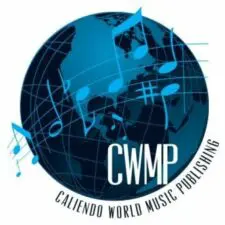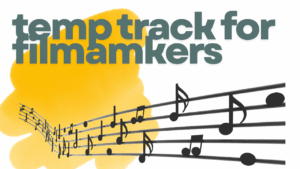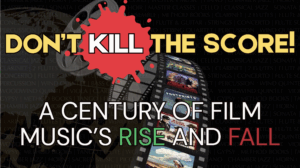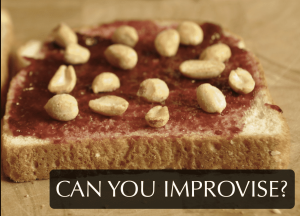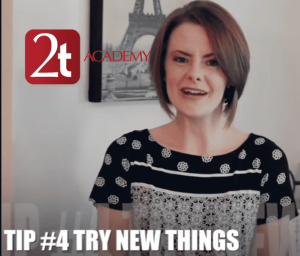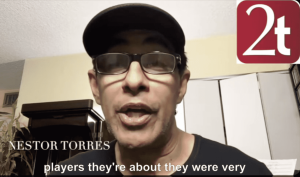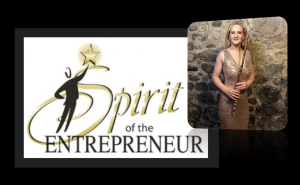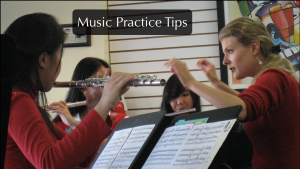The Art of Rhetoric
What is rhetoric?
Rhetoric is the art of effective or persuasive speaking or writing, artfully incorporating figures of speech and other compositional techniques.
Rhetoric – a brief history
Athens was the birthplace of classical rhetoric. Every free male entered in politics, every Athenian man had to speak to persuade his countryman to vote for or against a particular piece of legislation. A man’s success and influence in ancient Athens depended upon his rhetorical ability. Consequently, small schools dedicated to teaching rhetoric began to form. The first of these schools began in the 5th Century B.C. among a group of teachers called the Sophists.
The Sophists would travel from polis to polis teaching young men in public spaces how to speak and debate. Because rhetoric and public speaking were essential for success in political life, students were willing to pay Sophist teachers great sums of money in exchange for tutoring. A typical Sophist curriculum consisted of analyzing poetry, defining parts of speech, and instruction on argumentation styles. They taught their students how to make a weak argument stronger and a strong argument weaker.
Sophists prided themselves on their ability to win a debate on any subject even if they had no prior knowledge of the topic through the use of confusing analogies, flowery metaphors, and clever wordplay.
In short, the Sophists focused on style and presentation even at the expenses of truth.
“…the faculty of observing in any given case the available means of persuasion.”
In his treatise, The Art of Rhetoric, Aristotle established a system of understanding and teaching rhetoric.
In The Art of Rhetoric, Aristotle defines rhetoric as “the faculty of observing in any given case the available means of persuasion.” Rhetoric armed a man with the necessary weapons to refute the demagogues and those who used rhetoric for evil purposes.
The Art of Rhetoric had a tremendous influence on the development of the study of rhetoric for the next 2,000 years. Roman rhetoricians Cicero and Quintilian frequently referred to Aristotle’s work, and universities required students to study The Art of Rhetoric during the 18th and 19th centuries.
The first master rhetorician Rome produced was the great statesman Cicero. Cicero’s approach to rhetoric emphasized the importance of a liberal education. According to Cicero, to be persuasive a man needed knowledge in history, politics, art, literature, ethics, law and medicine. By being liberally educated, a man would be able to connect with any audience he addressed.
Quintilian immortalized his rhetorical education system in a twelve-volume textbook entitled Instituto Oratoria.
In 95 AD Quintilian wrote the 5 Canons of Rhetoric, which provided a guide on creating powerful speech.
The Five Canons are:
INVENTION
The process of developing and refining your arguments.
ARRANGEMENT
The process of arranging and organizing your arguments for maximum impact.
STYLE
The process of determining how you present your arguments using figures of speech and other rhetorical techniques.
MEMORY
The process of learning and memorizing your speech so you can deliver it without the use of notes.
Memory-work not only consisted of memorizing the words of a specific speech, but also storing up famous quotes, literary references, and other facts that could be used in impromptu speeches.
DELIVERY
The process of practicing how you deliver your speech using gestures, pronunciation, and tone of voice.
During the Middle Ages, rhetoric shifted from political to religious discourse. Instead of being a tool to lead the state, rhetoric was seen as a means to save souls. Church Fathers, like St. Augustine, explored how they could use the “pagan” art of rhetoric to better spread the gospel to the unconverted and preach to the believers. During this period, universities began forming in France, Italy, and England where students took classes on grammar, logic, and rhetoric.
Like the arts and sciences, the study of rhetoric experienced a re-birth during the Renaissance period.
As democratic ideals spread throughout Europe and the American colonies, rhetoric shifted back from religious to political discourse. Political philosophers and revolutionaries used rhetoric as a weapon in their campaign to spread liberty and freedom. The proliferation of mass media in the 20th century caused another shift in the study of rhetoric. Images in photography, film, and TV have become tools of persuasion. In response, rhetoricians have expanded their repertoire to include not only mastery of the written and spoken word, but a grasp of the visual arts as we.
Rhetoric Applied to Telemarketing: Example No. 1
The GATEKEEPER – your opportunity to acquire great information
OPERATOR: Hello, this is Rachel, how can I assist you?
CHRISTOPHER: Rachel…that’s a biblical name – wonderful name….(pause)
OPERATOR: Hey, thanks – my mother named me Rachel.
CHRISTOPHER: Any reference to the Bible?
OPERATOR: Yes, the sister of Leah, she always told me that if I wanted to learn loyalty that Rachel set a good example with her devotion to her husband.
CHRISTOPHER: (now thinking, she is gregarious, likes to talk and may be reliable)
Well Rachel… (reiterate the name which adds familiarity), your mother possesses great wisdom and no doubt it has had a positive effect on your life because your communication skills are excellent.
OPERATOR: Hey thanks, I appreciate that.
CHRISTOPHER: And I appreciate your assistance – (now take control)… is Mike, the CFO in today?
(you do not want to ask to be transferred because you want more info from Rachel!)
OPERATOR: Yes, I can transfer you now…
CHRISTOPHER: Before you do that, does Mike have an extension just in case, you know, we are disconnected?
OPERATOR: Yes, his extension is 211.
CHRISTOPHER: I hear Mike likes an early lunch
OPERATOR: He usually goes out for lunch at 1 pm.
CHRISTOPHER: Well maybe you can help me – what is the best time to get a hold of Mike?
OPERATOR: Well…he’s a morning person, right now is good. If you have to leave a voice mail, I would call back at 3 pm.
CHRISTOPHER: Please connect me and if I have to call back, I will have another opportunity to talk with you.
(always treat the operator with respect – she/he is very important in developing your relationship internally!) Oh! – one more thing – is your physical address still 200 Cherry Ave.?
OPERATOR: Yes, let me connect you. Hold on.
From talking with the operator you discovered the following information:
- Company’s physical address
- Extension for Mike
- When is the best time to call Mike
- Character trait of Rachel – you know she is willing to provide information, you know her religious persuasion, you know a little bit about her mother.
- If you have to leave a voice mail, you can now mention to Mike that Rachel was an excellent reflection of the company’s core values. Nice way to leave a message.
- You can now call Mike direct because you have his extension.
Rhetoric Applied to Telemarketing: Example No. 2
YOUR VOICE – how to match your voice and why it’s often useful to match your voice and why it’s often necessary
SCRIPT #1:
MIKE: ”Hello”
(listen to the quality of his voice and how he answers the phone. Does he answer briskly? Does he sound like he is in a rush?)
CHRISTOPHER: (speak slowly first)
Hi Mike, this is Christopher from Manufacturers Bank. Is this a good time to talk briefly?
MIKE: Sure, I have a few minutes.
CHRISTOPHER: You sound like you are from NY….
MIKE: No, I’m from Jersey – born in Jersey City.
CHRISTOPHER: (Slightly adjusting to a more East Coast accent).
When did you come to CA? (now change your accent)
MIKE: Oh gee, I have been here since ’74.
CHRISTOPHER: I came out here in 87 – my best friends from Jersey City and he was best man at my wedding.
MIKE: No kidding …
CHRISTOPHER: In fact, most of my friends in CA are from back east. There is something so special about being born from that part of the country….
MIKE: I have a lot of my immediate family out here now. We love it.
TAKEAWAYS:
Immediately found a common ground by –
- Matching my voice
- Using geography as the common ground
“SILENCE IS ONE OF THE GREAT ARTS OF CONVERSATION.” – Marcus Tullius Cicero
SCRIPT #2:
MIKE: ”Hello” (in a rush)
CHRISTOPHER: “Good morning Mike. (do not say “hello” Mike)
Which one sounds better to you?
“Did I catch you at a good time?”
“Is this an appropriate time to talk briefly?”
MIKE: “I have a ton on my plate today. Can you call me later today at 3 pm?”
CHRISTOPHER: “Certainly. Do you have a direct line? (If operator does not give it to you – use the fact that he is not letting you speak to him to your advantage.)
MIKE: “Yes – 212.”
CHRISTOPHER: Great – I look forward to talking with you then.
3 PM:
MIKE: ”Hello” (not in a rush)
CHRISTOPHER: “Hello Mike, it’s Christopher once again from Manufacturers Bank. Thank you for accepting my call.” Wait …. (see if he remembers you from this morning – data point)
MIKE: That’s fine ….. (he waits…._)
CHRISTOPHER: “Simply put –I would be grateful to have the opportunity to introduce Manufacturers Bank to you.” (Wait)
MIKE: Well, I appreciate that, but we are all set here.
CHRISTOPHER: “Mike, I assume your company does a lot of R & D.”
MIKE: “Yes”
CHRISTOPHER: “Are you aware of the new 2020 amendments imposed by the Federal and State regarding R & D Tax Credits?”
MIKE: “No”
CHRISTOPHER: “Mike, four times a year, I sponsor a guest speaker at the Los Coyotes Country Club. This coming May 20th, Jayson Morgan of Marcum LLP will be speaking on the new amendments and tax credits your company could be eligible. If you like, I can email you the invitation. If you have any questions you would like me to ask Jayson ahead of time – specific to your company, I would be happy to email them to him in advance.”
Wait ….
MIKE: Sure – my email is:
CHRISTOPHER: “Mike, I look forward to sending you the invitation. Thank you for the privilege to talk with you today.”
(you can get off the phone…. you have what you need.)
USING POWER WORDS
The art of articulation and emphasis
Review the previous script and this time let’s emphasize power words (bolded) to change our articulation.
SCRIPT #2:
MIKE: ”Hello” (in a rush)
CHRISTOPHER: “Good morning Mike. (do not say “hello” Mike)
Which one sounds better to you?
“Did I catch you at a good time?”
“Is this an appropriate time to talk briefly?”
MIKE: “I have a ton on my plate today. Can you call me later today at 3 pm?”
CHRISTOPHER: “Certainly. Do you have a direct line?
MIKE: “Yes – 212.”
(If operator does not give it to you – use the fact that he is not letting you speak to him to your advantage.)
CHRISTOPHER: Great – I look forward to talking with you then.
3 PM:
MIKE: ”Hello” (not in a rush)
CHRISTOPHER: “Hello Mike, it’s Christopher once again from Manufacturers Bank. Thank you for accepting my call.” Wait …. (see if he remembers you from this morning – data point)
MIKE: That’s fine ….. (he waits….)
CHRISTOPHER: “Simply put –I would be grateful to have the opportunity to introduce Manufacturers Bank to you.” (Wait)
MIKE: Well, I appreciate that but we are all set here.
CHRISTOPHER: “Mike, I assume your company does a lot of R & D.”
MIKE: “Yes”
CHRISTOPHER: “Are you aware of the new 2016 R & D Tax Credits amendments for taxpayers like yourself who engage in qualified research?
MIKE: “No”
CHRISTOPHER: “Mike, four times a year, I sponsor a guest speaker at the Los Coyotes Country Club. This coming May 20th, Jayson Morgan of Marcum LLP will be speaking on the new amendments and tax credits your company could be eligible. If you like, I can email you the invitation.” (Wait)
MIKE: Sure –
CHRISTOPHER: “What is your email …?”
MIKE: Provides email …
CHRISTOPHER: “Mike, I look forward to sending you the invitation. Thank you for the privilege to talk with you today.” (At this time, you can get off the phone….you have what you need.)
SETTING UP POWER WORDS BY PRE-SCRIPTING
Below is a sample SCRIPT of a typical cold call. First, let’s read it through then outline the power words in BOLD. This dialogue is between Christopher and Taco Bell Franchisee Owner, Mike Yadzyn.
CHRISTOPHER: Hello Mike, my name is Christopher and I have the privilege of working at Manufacturers Bank. Is this an appropriate time to talk with you?
MIKE: How can I help you?
CHRISTOPHER: Steve Stoico of Taco Bell just became a customer of Manufacturers Bank and recommended I call you. (Wait)
MIKE: Oh really, Steve and I go way back.
CHRISTOPHER: I am very fortunate to have earned Steve’s trust. His family, as you know, have been successful stewards of Taco Bell for many prosperous years. When a man of Steve’s character refers another Taco Bell franchisee to me, I take it very seriously.
MIKE: Steve’s a good guy.
CHRISTOPHER: Mike, a nice way to get to meet you is by inviting you to the bank’s next Food Franchise Workshop which features attorney, Luke Carlson who will be focusing on a very trendy topic, one I am certain you are well aware of: the NLSR. Pauses
MIKE: The labor unions. I would be all over that!
CHRISTOPHER: The date is May 20th, Friday morning at the Los Coyotes Country Club. Where are your corporate headquarters located?
MIKE: Santa Ana
CHRISTOPHER: That’s very close. What is your email address and I will send you the invitation?
MIKE: Provides email address.
CHRISTOPHER: Would you prefer to meet for coffee before the event?
MIKE: Next week is fine. Let me know in your email where.
CHRISTOPHER: Mike – thank you for being part of my day today. I look forward to meeting you.
“A conversation is a dialogue, not a monologue. That’s why there are so few good conversations: due to scarcity, two intelligent talkers seldom meet.”
USE YOUR PEN AND UNDERLINE THE POWERWORDS
ALSO, ADD WHERE YOU WOULD PAUSE AND WHY
WHAT WORDS WOULD YOU EMPHASIZE? WHY?
CHRISTOPHER: Hello Mike, my name is Christopher and I have the privilege of working at Manufacturers Bank. Is this an appropriate time to talk with you?
MIKE: How can I help you?
CHRISTOPHER: Steve Stoico of Taco Bell just became a customer of Manufacturers Bank and recommended I call you. (Wait)
MIKE: Oh really, Steve and I go way back.
CHRISTOPHER: I am very fortunate to have earned Steve’s trust. His family, as you know, have been successful stewards of Taco Bell for many prosperous years. When a man of Steve’s character refers another Taco Bell franchisee to me, I take it very seriously.
MIKE: Steve’s a good guy.
CHRISTOPHER: Mike, a nice way to get to meet you is by inviting you to the bank’s next Food Franchise Workshop which features attorney, Luke Carlson who will be focusing on a very trendy topic, one I am certain you are well aware of: the NLSR. (Pause)
MIKE: The labor unions. I would be all over that!
CHRISTOPHER: The date is May 20th, Friday morning at the Los Coyotes Country Club. Where are your corporate headquarters located?
MIKE: Santa Ana
CHRISTOPHER: That’s very close. What is your email address and I will send you the invitation?
MIKE: (Provides email address)
CHRISTOPHER: Would you prefer to meet for coffee before the event?
MIKE: Next week is fine. Let me know in your email where.
CHRISTOPHER: Mike – thank you for being part of my day today. I look forward to meeting you.
TO GIVE WITHOUT EXPECTATION
Why is this approach necessary in today’s market?
The ultimate goal of networking is with the mindset of uncovering what the other people at the event are looking for and how you might assist them. Look at business as a service opportunity it will help you in the long run. In order to do this, you have to be motivated to give because you desire to serve, not because you have an expectation for reward.
5 Core Examples
- Have someone you know introduce you to the person you want to meet and expect nothing in return.
Introductions with context, background, and information are always preferred. Be interested in other people, not what they can and cannot offer you. You will be surprised on what happens when you do not have expectations for a return on your time and energy investment. Never ask for something other than information about the person’s business and experience in the initial call or email. Such requests are inappropriate on the “first date.” In general, opportunities are offered and given, not requested, demanded, or taken.
- Compliment the person you want to meet in something they did or accomplished and expect nothing in return.
When you see a businessman doing great work, compliment them. People want to know they are doing a great job. A compliment is non-threatening if given free of expectations and truthfully from the heart. People will remember you as an honest person who cares. Being an honest and caring person is essential and invaluable in all relationships. You can do this through email or other electronic communication if there is no prior personal relationship. This works dramatically well if a business owner is involved in outreach programs to help kids.
- Share helpful information about a topic or an upcoming event with the person you want to meet in an area or industry that interests them and expect nothing in return.
If you know that the person you want to meet works in a certain industry and would appreciate information on a topic, send an email to the person with the article, etc. You could also invite someone you respect and want to hear their expertise in a subject to speak on a panel, write an article, or to provide a quote for an article. Of course, the above scenarios require you to keep up on the news in an industry and to be involved and in a position to invite someone to speak, write, or comment. The above cannot be accomplished in a vacuum—context, involvement, and consistency matter. You may be surprised how appreciative people are for thinking of them.
EX: Workshops
- Refer business to the person you want to meet because that person is good at what they do and expect nothing in return.
We live in a world where experts thrive. In the legal industry, if you are not familiar with an area of practice, you refer it out to another qualified and reputable attorney or bring in a qualified and reputable attorney who can help you and in turn help the client with the matter. It should be of no surprise that the most successful and happiest people in the world are those who master one or two things and focus years on mastering those skills, while practicing the Golden Rule in all of their relationships. The setting, plot, and other factors may change, but a skill set is still good for life.
By passing business to a qualified professional, you gain the professional’s trust and the client’s as well.
Being a professional in any industry consists of passing up economic gain or notoriety for doing the right thing by taking care of the client first, which may be through another professional with the requisite knowledge and experience. You can gain many friends by passing opportunities without expectations.
Then, once you have completed steps two, three, and four, repeat them, consistently, with people you know and trust and would like to know and trust.
- Introduce yourself to the person you want to meet through a phone call or email and expect nothing in return.
Listed last for a reason, regardless of the medium utilized (email, LinkedIn, or phone call, etc.) a blind introduction without context is generally the most difficult and should be attempted last where the above options are not available. Blind introductions are difficult because it might be intimidating or perceived as unprofessional depending on how the introduction is worded or spoken.
First, always establish a relationship first before requesting something of value. Second, be willing to give of your time and resources without an expectation for a return on your investment. Third, remember that giving generally precedes receiving anyway.
Ultimately you want to establish a great reputation so the person may have already heard of you, which could help you to make a long-lasting connection. Point being, having a good reputation to stand upon is always best in developing business relationships. Hearing “your reputation precedes you” when meeting someone you want to meet is always a good start.
TAKEAWAY
Take the time to help people. You never ever know who may be the one that introduces you to a life-changing opportunity or experience. When you respond to the needs of others with no thought of what you might get out of it, the universe conspires to facilitate powerful and wonderfully reciprocal business and personal relationships.
USING CENTERS OF INFLUENCE TO GROW YOUR DATABASE – the Workshop
How to get others to get you to meet your quota
- Nobody likes a run-down, burned-out hero.
There is a lot of work demanded of the business development officer. Far more than people realize especially so if you have to successfully meet the expectation of producing new customers. If you insist on doing all the work yourself then you will burn out. Having someone or others do the work for you will heighten your quality that others will admire.
EXAMPLE: Take artist Peter Paul Rubens for example, he assembled a vast array of outstanding artists to paint canvases so that when a client would visit Rubens’s studio it appeared to the client that Rubens was working arduously on his painting when in essence the painting was already nearly finished.
- There are skills that you do not possess.
Connecting with people who possess skills that you yourself lack is probably one of the wisest decisions you can make.
EXAMPLE: Like in the case of artist Rubens, he hired different types of artists. One artist specialized in robes, another specialized in backgrounds and so on. This is what enabled him to appear to be working diligently on his paintings. Although he had procured others to do these paintings, he was able to put his name on the work, thus being the genius who got the credit and the money.
- Standing on the shoulders of centers of influence can be brilliantly manipulated.
Isaac Newton, a genius in his own right made his discoveries built on the achievement of others. Shakespeare borrowed plots and other works from several writers, and we can only guess how many people plagiarized the works of Shakespeare himself. Using the knowledge of the past just makes you a clever borrower.
- Sharing the credit with others.
There is absolutely nothing wrong with sharing the credit with someone especially when that someone is your superior.
EXAMPLE: Henry Kissinger, the secretary of state under Richard Nixon. If it had not been for Kissinger’s diplomacy Nixon’s historic visit to the People’s Republic of China would not have been as successful as it was. Knowing when to hold back by not hogging the spotlight is also a talent that will be beneficial in the long term.
The credit for an invention is as important, if not more important than the invention itself.
MORAL: Fools say that they learn from experience. You should prefer to profit by others’ experience.
Now let’s take the above principles and see how they apply to the WORKSHOP:
1. Nobody likes a run-down, burned-out hero.
You can use Outlook Express to create GROUPS so you can email your contacts in customized categories. Use tech to match human efficiency, save time and allow you to focus on top agenda that demands your attention.
2. There are skills that you do not possess.
Alliance Partners are authorities who possess skillsets that companies may not possess. By aligning ourselves with key authorities directly associated with our prospect’s needs, we become the beneficiaries of that knowledge and ultimately leverage our name and influence with our long-range objectives.
3. Standing on the shoulders of centers of influence can be brilliantly manipulated.
By featuring Guest Speakers at workshops, we benefit by providing value to our prospects and the positive activity that follows as a result. We also get to share data bases with the guest speaker and visa-versa, piggybacking on their network and therefore empowering ours by accelerating future opportunities.
4. Sharing the credit with others.
By sharing the credit of putting a workshop with our Guest Speakers we concertize the relationship and build long lasting trust making sure you are the only banker they think of when a triggering event occurs.
